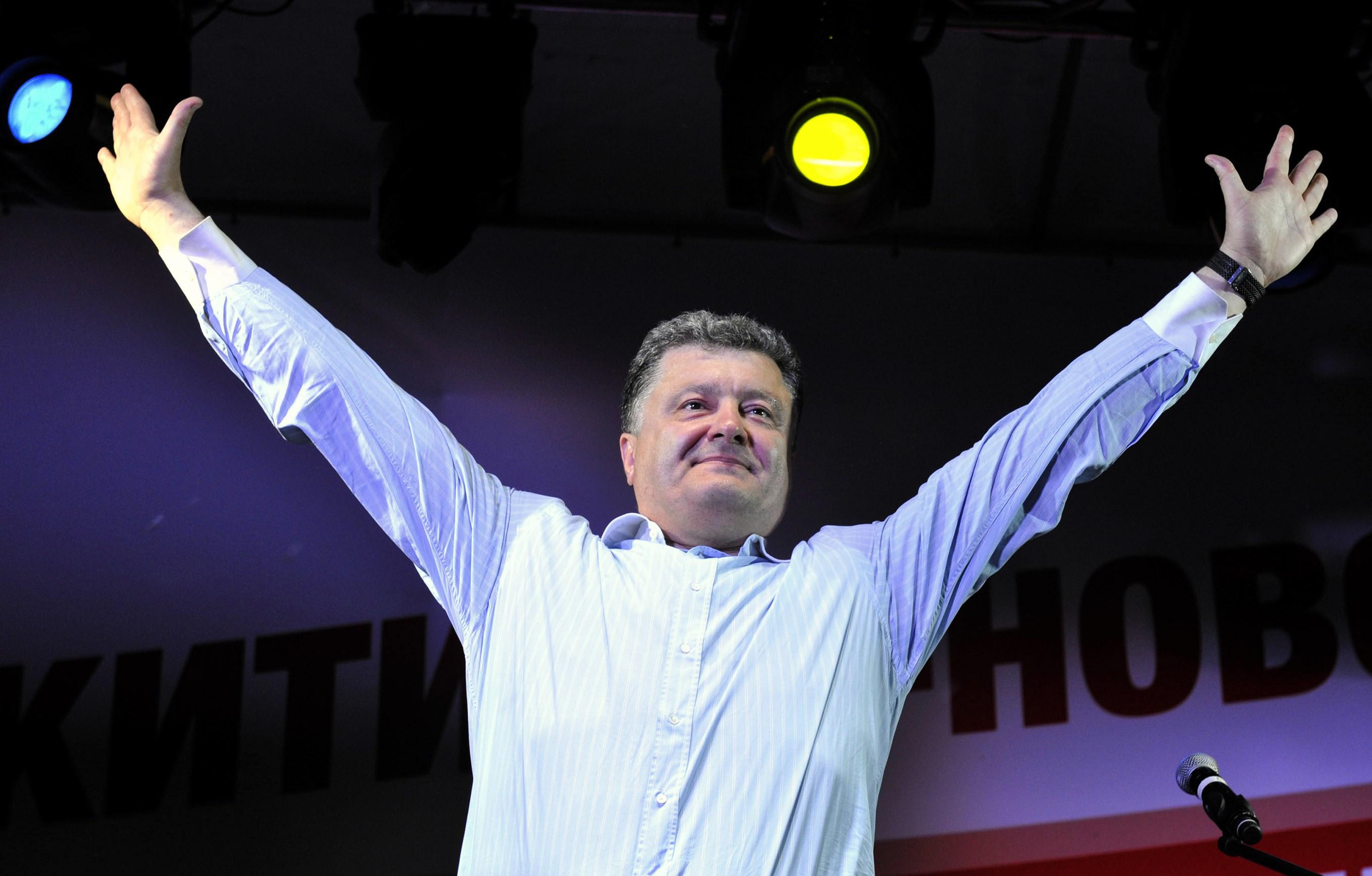If the polls are to be believed, Petro Poroshenko will almost certainly win this weekend’s presidential election in Ukraine, and has a good chance of getting over the 50 percent needed to avoid a runoff with second-place challenger Yulia Tymoshenko. If you want to get up to speed on Ukraine’s likely new leader, Luke Harding of the Guardian and Sarah Topol of Politico Magazine have profiles of the chocolate tycoon-turned-politician.
Governing Ukraine seems like a pretty thankless task for anyone right now, but Poroshenko does have some things going for him compared with his potential rivals. His platform, which combines an emphasis on badly needed economic development and openness to giving more autonomy to regional governments, seems rational.
He’s staunchly in the pro-European camp, and isn’t exactly popular in the country’s east. But he wasn’t one of the main opposition leaders during Maidan, so it’s easier to see Poroshenko, who grew up in a Russian-speaking household and was once an ally of ousted President Viktor Yanukovych, striking a deal with Russia rather than someone like Tymoshenko who is loathed in Moscow.
Unlike boxer Vitali Klitschko, he has political experience, having served as both foreign and trade minister. Unlike Oleh Tyannybok, he’s not a hard-right nationalist anti-Semite.
And while you probably don’t get to be the seventh-richest man in Ukraine, and live in a walled-off mansion with an uncanny resemblance to the White House, without cutting some corners, the chocolate business isn’t quite as rough-and-tumble as state-connected fields like mining or chemicals from which post-Soviet oligarchs more typically emerge.
But for a variety of reasons, the prospect of a Poroshenko presidency isn’t exactly inspiring. For one thing, he’s mainly the prohibitive favorite because of a backroom deal orchestrated by Dmitry Firtash, another billionaire facing charges in the U.S. for bribery, under which Klitschko, Poroshenko’s main rival, agreed to throw his support behind the chocolate king.
For many of those who took part, the Maidan protests were less about a geopolitical contest between Europe and Russia than frustration over a corrupt, incompetent, and increasingly authoritarian government. But since Yanukovych’s overthrow, we’ve seen the interim government farming out governance and even security responsibilities to powerful oligarchs, and now another one is poised to become president. As Topol points out, Poroshenko seems like exactly the sort of figure that the protesters were fighting to get rid of. It wouldn’t be at all surprising to see barricades return to Kiev in the near future.
Poroshenko also isn’t exactly a clean break with the past. Following the 2004–2005 Orange Revolution, he served in the government of President Viktor Yushchenko, a perennially divided and dysfunctional group that has the distinction of being perhaps the least popular democratically elected government in history, and carried out a bitter and extremely public feud with Tymoshenko, who got the prime minister’s job over him, that ended with them both being dismissed.
Then there’s the question of whether anyone could really govern Ukraine right now. Thanks to a campaign of intimidation by separatists, it seems likely that most voters in the eastern Donetsk and Luhansk regions won’t be able to vote, dealing a blow to the new president’s legitimacy right off the bat. Violence continues in the region, with new clashes between separatist and Ukrainian forces today.
The one bright spot seems to be that as the vote approaches and Poroshenko’s victory appears more certain, the Russian government may be backing off, with President Vladimir Putin saying today that he would “of course work with the newly elected structures” after the vote on Sunday.
It may be that Putin anticipates that the political chameleon Poroshenko is a man he can work with. He may also have concluded that he’s pushed his leverage about as far as it can go in Ukraine. He has, so far, not taken eastern Ukrainian separatists up on their request to absorb Luhansk and Donestsk, Crimea-style, into Russia.
But even if Poroshenko can somehow reach an understanding with Putin while accommodating a population that favors closer ties to Europe, which would be an impressive political achievement, the underlying issues facing Ukraine—slumping economy, massive corruption, declining population—haven’t gone away, and the fault line between the country’s two regions is now an open wound.
Based on recent history, my guess is that the chocolate king’s reign won’t be a happy one.
